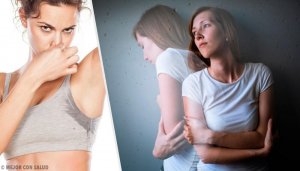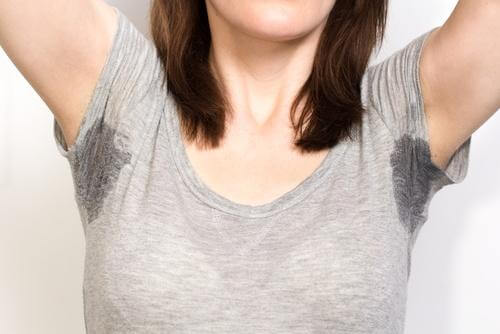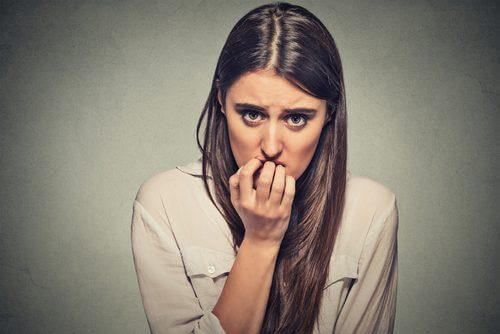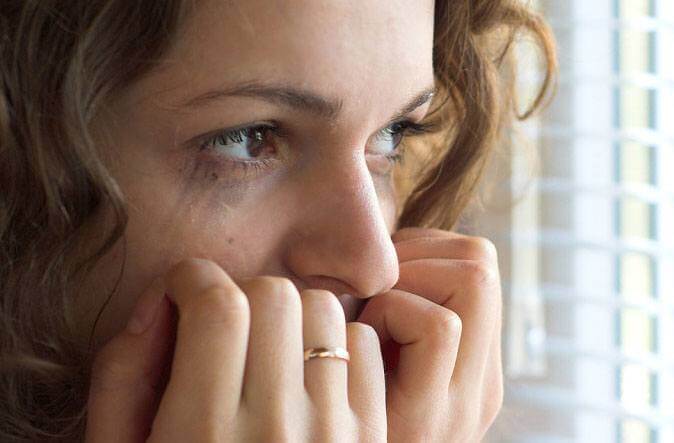How Anxiety Affects Your Body Odor

Anxiety affects your well-being and can also change your body odor.
Some people are unaware that some of their ailments are caused by anxiety. The first step in controlling secondary symptoms such as body odor is to identify said symptoms: tachycardia, sweating, increased body temperature, difficulty sleeping, stomach aches, etc.
If you want to know just how much this disorder can affect your body odor, read on.
The Link Between Sweating and Anxiety

That’s when the hypothalamus activates and notifies the adrenal glands, which begin releasing adrenaline, epinephrine, and cortisol. The latter is known as the stress hormone. This means that you end up sweating bullets.
However, this isn’t the same kind of sweat your body produces when you exercise. This type of sweat is made up of 80% water and 20% protein and fat.
This substance is also known for easily coming into contact with skin bacteria, causing bad BO. This becomes a vicious circle because you get more nervous when you notice that you’re sweating. This makes you sweat more, making you swell worse and worse.
Thus, anxiety may be the reason why you sometimes get bad BO. Treating your anxiety is the best way to fight this problem. Although sweating is natural, it makes everyone feel uncomfortable.
See also: Is it Normal to Sweat while you Sleep?
How to Fight Anxiety

Therefore, the best thing you can do is interpret facts in a positive light, be realistic, and avoid blowing situations out of proportion. It’s important to try to analyze just how possible it is that things will go sour, as well as what the consequences will be if the worst does happen.
Remember that there are many problems that are out of your control and you can’t do anything to fix, so it’s best to deal with with a positive attitude and simply be prepared for them.
It’s important to divert attention away from the problem. When you’re anxious, you’re totally and completely focused on what’s bothering and overwhelming you. In this regard, you have to learn to relax and not focus all your attention on the disturbing situation.
While it’s true you have to remain vigilant, you must also rest, have some fun, and think about other things.
You can resort to relaxation techniques if you feel it necessary. These techniques (such as breathing exercises) can help you calm down and see things in another light.
We recommend that you read: 6 Relaxation Exercises to Sleep Peacefully
What to do if You Get an Anxiety Attack

If you get a panic or anxiety attack, you lose control and this makes you feel even more scared. This is when your heart rate increases, you have difficulty breathing, you hyperventilate, your body temperature increases, and you start shaking.
When this happens to someone around you, the most important thing is to tell that person that there’s no real danger, that they’re not in a dire situation, and that what just happened isn’t all that serious.
If you can change the focus of attention and minimize the importance of the panic attack symptoms, you will feel relief.
The best way to do this is by thinking of something else, change the subject, work on something, do an activity that will distract you, and try to breathe more slowly.
All cited sources were thoroughly reviewed by our team to ensure their quality, reliability, currency, and validity. The bibliography of this article was considered reliable and of academic or scientific accuracy.
- Hofmann SG, Gutner CA, Fang A. Social Anxiety Disorder. In: Encyclopedia of Human Behavior: Second Edition. 2012.
- Davidson JRT, Foa EB, Connor KM, Churchill LE. Hyperhidrosis in social anxiety disorder. Prog Neuro-Psychopharmacology Biol Psychiatry. 2002;
- Sclereth T, Dieterich M, Birklain F. Hyperhidrosis- Causes and Treatment of Enhanced Sweating. Dtsch Ärzteblatt Int ⏐Dtsch Arztebl Int. 2009;
This text is provided for informational purposes only and does not replace consultation with a professional. If in doubt, consult your specialist.








